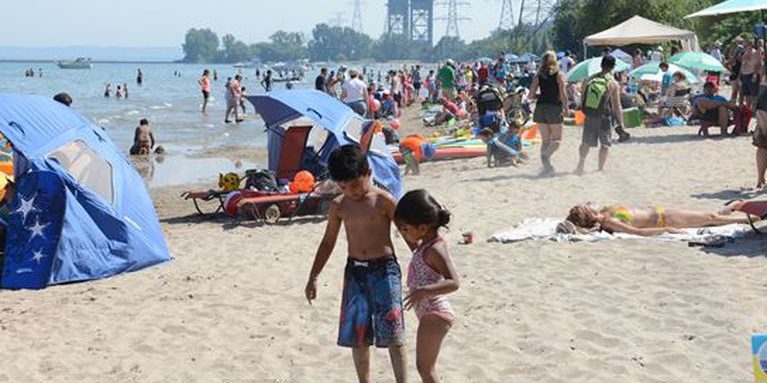First test of the season shows most beaches OK for swimming in Burlington, Oakville
Published June 19, 2024 at 11:53 am

The first water test of beaches in Oakville, Burlington, Milton and Halton Hills shows just one location deemed unsafe for swimming.
Testing on June 12 shows Bronte Beach Park, Lakeshore Road/Bronte Road in Oakville, where visitors should stay out of the water.
Overall, seven of nine Halton beaches got the thumbs from the Region as one, Kelso Beach in Milton, wasn’t tested.
The following beaches have all been declared safe for swimming:
- Beachway Park, 1094 Lakeshore Rd., Burlington
- Brant Street Beach, Lakeshore Rd. and Brant St., Burlington
- Lakeside Park Beach, 144 Front St., Oakville
- South Shell Park Beach, 3376 Lakeshore Rd. W., Oakville
- Coronation Park East, 1426 Lakeshore Rd. W., Oakville
- Coronation Park West, 1426 Lakeshore Rd. W., Oakville
- Prospect Park Old Beach, 30 Park Ave., Acton
During the summer months, Halton Region Public Health monitors water quality at selected recreational beaches in Halton Region. This is done as part of the Region’s commitment to protect the safety, health and well-being of all Halton residents.
Until the Labour Day weekend Halton public beaches are routinely sampled every Wednesday. Since water quality can change day-to-day, or even hour-to-hour depending on many factors, beach goers cannot rely only on lab results.
Here are some factors beach goers need to take into consideration before swimming:
- Rain has a significant impact on water quality. Rain washes contaminants into streams, rivers and lakes, increasing the bacterial levels. We do not recommend swimming for 24-48 hours after heavy rainfalls.
- High winds can cause waves which stir up sand and silt, making the water cloudy. If the water appears cloudy (i.e. you can’t see your feet standing waist deep in the water), swimming is not recommended.
- The presence of seagulls, geese, ducks, and their droppings can have a significant impact on water quality, increasing the bacterial levels.
- Warmer water temperatures in shallow water are more favourable for bacterial growth and may increase bacterial levels.
- Heavy algae growth or accumulation
- Visible debris, metal, or sharp objects in the water or beach area
For more information about public beaches in Halton, visit the region’s website.
insauga's Editorial Standards and Policies advertising





